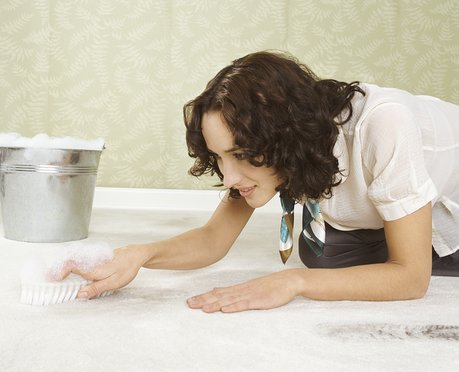Every day set aside some time to make a list of what you hope to achieve that day or week. Ticking completed items off gives such satisfaction and compiling the list helps you realize what your priorities are. Spend an evening working out a permanent list of tasks to be done around your home and subdivide them into ‘everyday’, ‘once a week’ or ‘once a fortnight’ and ‘once a year’.
Your household already has a system, even though you may not be aware of it. You probably do the washing-up after each meal (or at least within 24 hours) and you may well empty your rubbish every day or take your newspapers to work rather than throwing them away. Start noticing and rationalizing what you do when and what you do not do at all, and bear in mind that most tasks only get worse if left to pile up.
Organize your housework to make it as easy as possible for yourself. For example, if you leave things that are in the wrong room on the ‘flightpath’ to their correct home they are more likely to get taken there.
If you can do a messy job in the kitchen, or better still in the garden, take it there and then you will have less to clean up afterwards. If you are feeling energetic, it saves effort to clean adjoining rooms at the same time. Never clean if you do not feel like it; it may put you off for another day. If you really don’t have the time to this task, see Dusty Shades House Cleaning website here for help.
The kitchen
Most of the housework you will have to do on a regular, everyday basis will be in the kitchen, preparing and cleaning up after meals. Being organized about this and establishing a routine can do a lot to make this daily chore easier to cope with. For example, put everything away as soon as you have finished using it, clean up messes and spills immediately and wipe over worktops once you have finished cooking – they just get more difficult to deal with later.
In the kitchen, line shelves and drawers with wipe-clean paper and replace it when dirty. Wash dishes, pots, pans and cooking utensils as you cook, or soak them, and use non-stick pans. Soak plates and cutlery from the first course while you are eating your second course, and so on. Wash glasses first and then wash dishes from cleanest to dirtiest. Make sure your drainer is large enough so that you can leave everything to drain dry except silver and glasses, which should be dried with a clean linen tea-towel.
Buy as many labour-saving devices as you can afford and then use them. If you have a dishwasher (very time-saving) make sure you have enough crockery and cutlery to fill it and some spare to eat off while the machine is full. Time yourself doing certain tasks you find boring, such as emptying the dishwasher; you will be amazed at how little time they take. Swill sinks with water after use and buy a sink (and basin) strainer to stop food bits and pieces or loose hairs clogging up your drains, which you will then have to remove.
The bathroom
Use bubble bath rather than soap in your bath: you will not have a dirty rim afterwards and both you and the bath will be clean. Better still, save water and use the shower. Before you put clothes into the washing machine, use them to dust a bit of your room. Have laundry baskets to put dirty clothes into the moment they are removed so that piles of laundry are not left lying on the floor. Similarly, put away clean clothes when they are dry (and ironed, if necessary).

The bedroom
In the bedroom use a duvet and fitted undersheet on your bed. Buy mini bookshelves rather than bedside tables to avoid large piles of books gathering that have to be lifted when you want to clean. Keep curtains off the ground. Trailing ones may be fashionable, but you have to lift them when vacuuming and the bottoms get dirty very quickly. Choose soft furnishing fabrics and blankets that can be put in the washing machine, or dry-cleaned. Choose colours and textures that do not show the dirt and, if you have pets, leave towels on favourite pieces of furniture for them to lie on. There is nothing more infuriating and time-consuming to remove than pet hairs on furniture.
Furniture and floors
When buying furniture, try to avoid fiddly pieces with built-in dust-traps. Choose furniture that is easy to move or clean under and does not need to be polished. Have as few objets d’art lying around as possible. Although open fires are cosier, they are more difficult to keep clean than gas or electric fires.
Use fitted carpets wherever possible; it is easier to vacuum than to clean a smooth floor, even if it is sealed with clear polyurethane lacquer – they are also more luxurious to walk on. Old wooden floors have years of dust under them which will continually rise to the surface, so cover them with carpet.